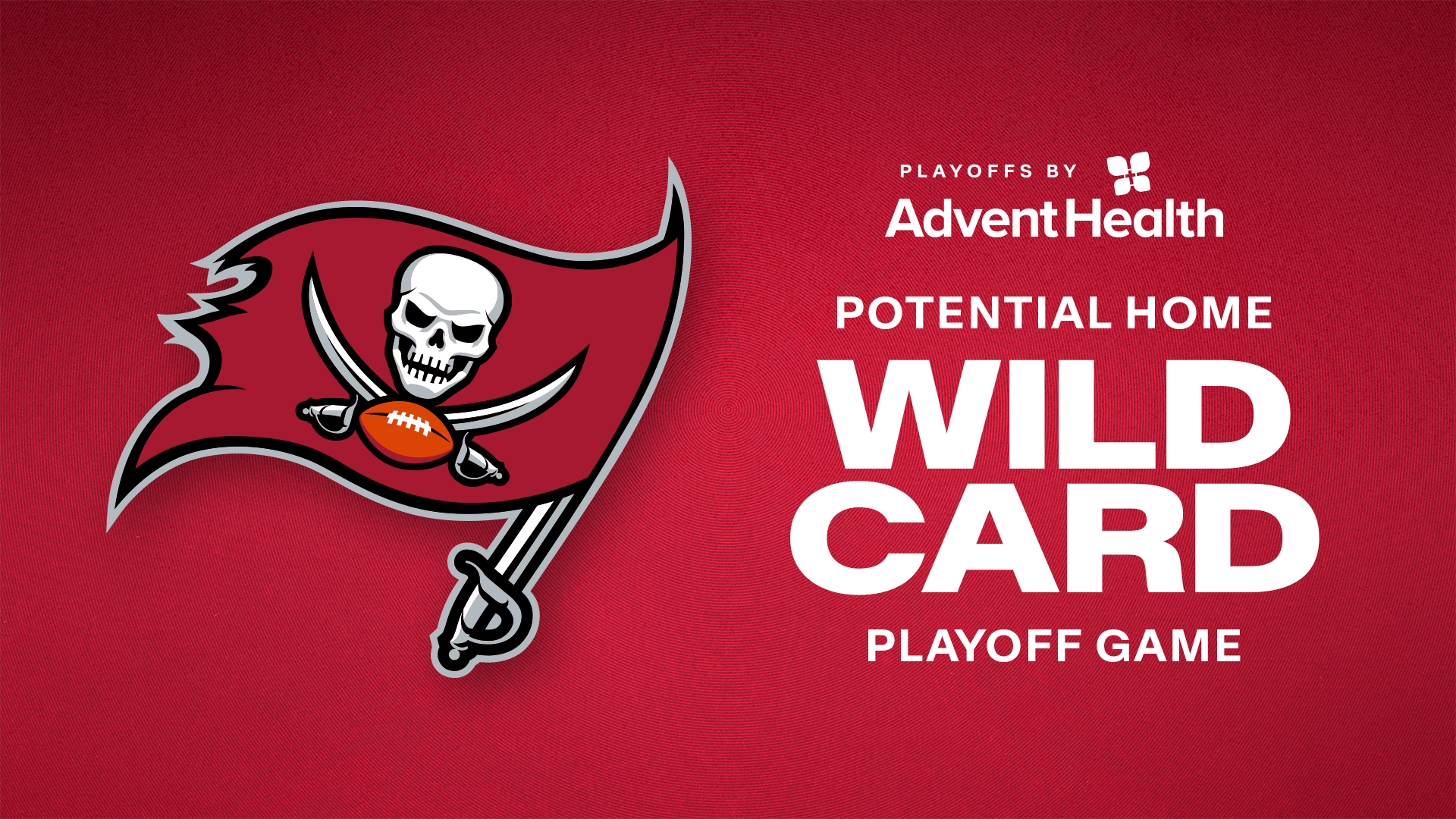During the summer of 2011, the Tampa Bay Buccaneers "Answer Man" – an on-line persona on Buccaneers.com that fields football questions from fans – researched the history of NFL teams that had improved by at least seven wins from one season to the next. (You can watch the video of the Answer Man's findings here.)
The relevance was obvious: In 2010, the Buccaneers had surprised the NFL with a 10-6 season, despite having the league's youngest roster and despite winning just three games the season before. The question of what has historically happened to teams with sudden and drastic improvements in their win-loss totals in the seasons that followed that improvement was now of great interest to a team about to embark on that very journey.
The statistical results were a mixed bag that could, as is often the case with stats, be twisted to a positive or negative bent. For instance, ESPN.com NFC South reporter Pat Yasinskas noted the near-.500 composite record by teams in the study in the year after a seven-win improvement, though he did predict a better finish for the 2011 Buccaneers, based on the roster's youthful promise.
On the other hand, Yasinskas also pointed a more promising number from the study, one that now happens to be relevant to the 2012 Buccaneers. Following Tampa Bay's 4-12 record this past fall, which added to that year-after trend of underwhelming results, it's time to look at what the original Answer Man study suggests about the longer-term fortunes of such teams.
The number that Yasinskas noted, and that should be of interest to Tampa Bay fans as the 2012 offseason begins, was this: .590. That's the combined winning percentage of teams two seasons after they make a one-year improvement of at least seven wins. For the Buccaneers, 2009 was the pre-improvement season, 2010 was the season with the seven-win jump, 2011 was a season of unfortunate (but not statistically surprising) regression, and 2012 is the season in which they will try to build on the success of their predecessors.
A total of 23 teams, including the 2010 Buccaneers, have improved by seven or more wins from one season to the next, the first two accomplishing the feat from 1962-63 (those two were actually in the AFL before the AFL-NFL merger in 1970). A whopping 17 of those 23 teams had records of .500 or better two seasons later, including six that had finished under .500 in the previous season. Impressively, 10 of those 17 teams had winning percentages of .600 or better.
The improvement wasn't fleeting, either. In the third season after the seven-win improvement, the majority of the 22 teams on the list were still winning more than they were losing. Overall, those 22 teams combined for a winning percentage of .537 in the " 3" year, with 15 of them producing winning records.
This past fall, the San Francisco 49ers became the 24th team on the list, turning a 6-10 campaign in 2010 into a marvelous 13-3 season in 2011. Obviously, their contributions to the overall statistical trend will have to wait until the 2012-2014 seasons. Below is the full list of 24 teams in the NFL who have made seven-win improvements in a single season. In the interest of space and clarity, their pre-improvement season (Year -1), turnaround season (Year 0) and post-turnaround season (Year 1) are not included in the chart. Each team is listed with the five-season span in question (Year -1 to Year 3) and their records in the second and third seasons following the seven-win improvement (Years 2 and 3).
|
Team |
Year 2 |
Pct. |
Year 3 |
Pct. |
|
SD (AFL), 1962-66 |
9-2-3 |
.750 |
7-6-1 |
.536 |
|
OAK (AFL), 1962-66 |
8-5-1 |
.607 |
8-5-1 |
.607 |
|
BAL, 1974-78 |
10-4-0 |
.714 |
5-11-0 |
.313 |
|
NE, 1975-79 |
11-5-0 |
.688 |
9-7-0 |
.563 |
|
DET, 1979-83 |
4-5-0 |
.444 |
9-7-0 |
.563 |
|
SF, 1980-84 |
10-6-0 |
.625 |
15-1-0 |
.938 |
|
CIN, 1987-91 |
9-7-0 |
.563 |
3-13 |
.188 |
|
DEN, 1990-94 |
9-7-0 |
.563 |
7-9-0 |
.438 |
|
IND, 1991-95 |
8-8-0 |
.500 |
9-7-0 |
.563 |
|
SD, 1991-95 |
11-5-0 |
.688 |
9-7-0 |
.563 |
|
NYJ, 1996-00 |
8-8-0 |
.500 |
9-7-0 |
.563 |
|
ATL, 1997-01 |
4-12-0 |
.250 |
7-9-0 |
.438 |
|
IND, 1998-02 |
6-10-0 |
.375 |
10-6-0 |
.625 |
|
STL, 1998-02 |
14-2-0 |
.875 |
7-9-0 |
.438 |
|
NO, 1999-03 |
9-7-0 |
.563 |
8-8-0 |
.500 |
|
CHI, 2000-04 |
7-9-0 |
.438 |
5-11-0 |
.313 |
|
PIT, 2003-07 |
8-8-0 |
.500 |
10-6-0 |
.625 |
|
SD, 2003-07 |
14-2-0 |
.875 |
11-5-0 |
.688 |
|
BAL, 2005-09 |
11-5-0 |
.688 |
9-7-0 |
.563 |
|
NO, 2005-09 |
8-8-0 |
.500 |
13-3-0 |
.813 |
|
MIA, 2007-10 |
7-9-0 |
.438 |
6-10-0 |
.375 |
|
ATL, 2007-10 |
13-3-0 |
.813 |
10-6-0 |
.625 |
|
TB, 2009-10 |
?? |
?? |
?? |
?? |
|
SF, 2010-11 |
?? |
?? |
?? |
?? |
|
Totals |
198-137-4 |
.590 |
186-160-2 |
.537 |
There are, unquestionably, different circumstances that defined each of these teams and the five-year spans included. The most successful team on the list, for instance, is the San Francisco 49ers of the 1980s. The "Year -1" for this 49er team was 1980, the second with Bill Walsh at the helm. After a breakout season, the 49ers stumbled in the strike-shortened 1982 campaign but became a juggernaut after that. Similarly, the 1998-02 Indianapolis Colts stand out because 1998 was Peyton Manning's rookie season, and that franchise began a long run of success shortly after Manning's arrival.
The Chicago Bears of the opening years of the new millennium, on the other hand, were mostly a struggling team that had one apparently fluky season in 2001. That team cycled through quarterbacks and running backs at an alarming rate during the five year span but in '01 got big years from RB Anthony Thomas, WR Marty Booker and QB Jim Miller (to a lesser extent) and saw it's Brian Urlacher-led defense hit a peak.
The circumstances of the Buccaneer run that began in 2009 don't particularly match any of those examples, with the possible exception of Josh Freeman potentially developing into a franchise quarterback like Peyton Manning. Neither the successes of Walsh's 49er dynasty or Manning's offensive juggernaut nor the Bears' inconsistencies a decade ago inform us much about the Buccaneers' chances in 2012 and 2013.
However, the composite record of the teams that have experienced the relatively uncommon turnaround the Buccaneers managed from 2009-10 is certainly encouraging. The 2009 season marked the beginning of a youth movement in Tampa Bay, one that produced hard times, in terms of wins and losses, in its first year but led to great optimism in 2010.
As it turned out, the Buccaneers hopes of building on that 10-6 campaign in 2010 and vaulting into the playoffs with its young and talented roster didn't come to pass in 2011. That was a disappointing outcome, and unexpected, but in the bigger picture of teams in such a situation, it was not out of the ordinary.
Fortunately, if the Buccaneers do end up following the general path of teams that have made such sudden one-year improvements, the seasons ahead will feature a return to the playoff race. That would certainly build on a very promising trend – of the 22 teams that made seven-win turnarounds before the Buccaneers of 2010, 12 of them were in the playoffs two years later.
























